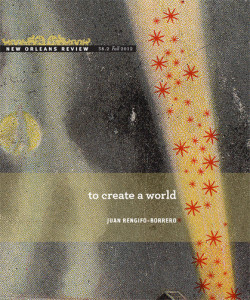The credibility of a world depends on two or three laws.
Gravity, incurable diseases kill, saying in general
alleviates the pain associated to any suffering. Good
service is rewarded, good education replaces
illiquidity, saying in general excuses any
miscalculation. If not, the possibilities are infinite.
If so, saying in general, the possibilities are
infinite, will alleviate any suffering.
If nothing else works, to create a plausible world
depends on persuading its population. Making up two or
three laws. Gravity. An exception that confirms any
rule. The possibilities are infinite. Without regard to
limitless legislations it is recommendable to count in
order to convince a world. Any product is better sold in
scarce numbers. One world. A hundred and twenty-eight
words. Two or three laws. Seven billion two hundred
fifty-four million inhabitants. Incurable diseases
alleviate any suffering.
In order to believe a world it is advisable to mimic its
population. Say in general, if nothing else works, good
service replaces illiquidity, good education is
rewarded, it is fair to smile when you barely make it
through the shutting doors. Emulate its inhabitants,
remain unhappy when you make it on time, say in general,
incurable diseases kill. Count if so. Count if not. One
world. Two or three laws. The possibilities are
infinite. If nothing else works.
{To read the rest of this piece, please purchase Issue 38.2.}
Juan Rengifo-Borrero lives and works in New York City. “To Create a World” is his first series of poems published in the United States. He holds a Master of Public Administration from Columbia University and was born in Cali, Colombia.

